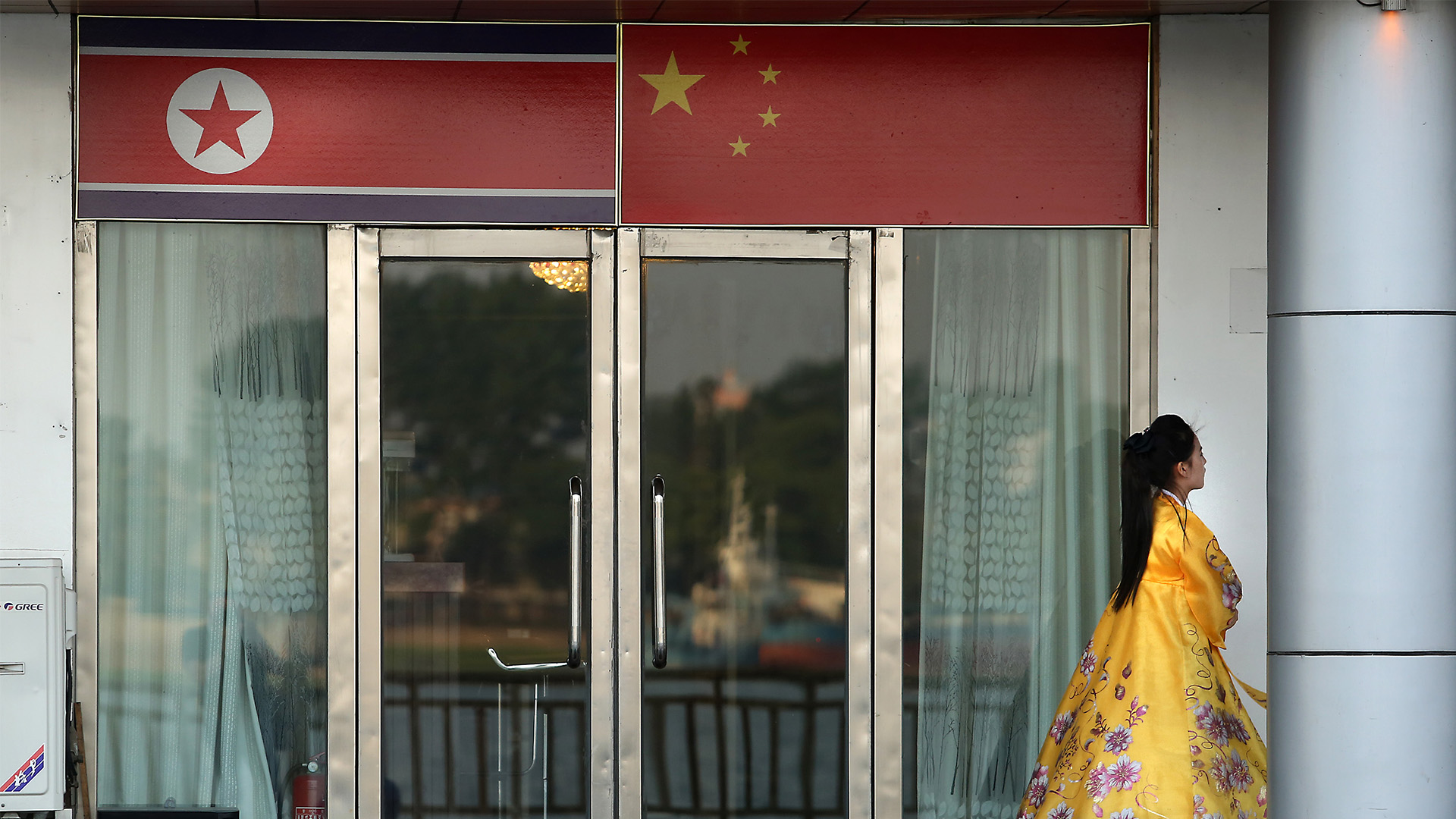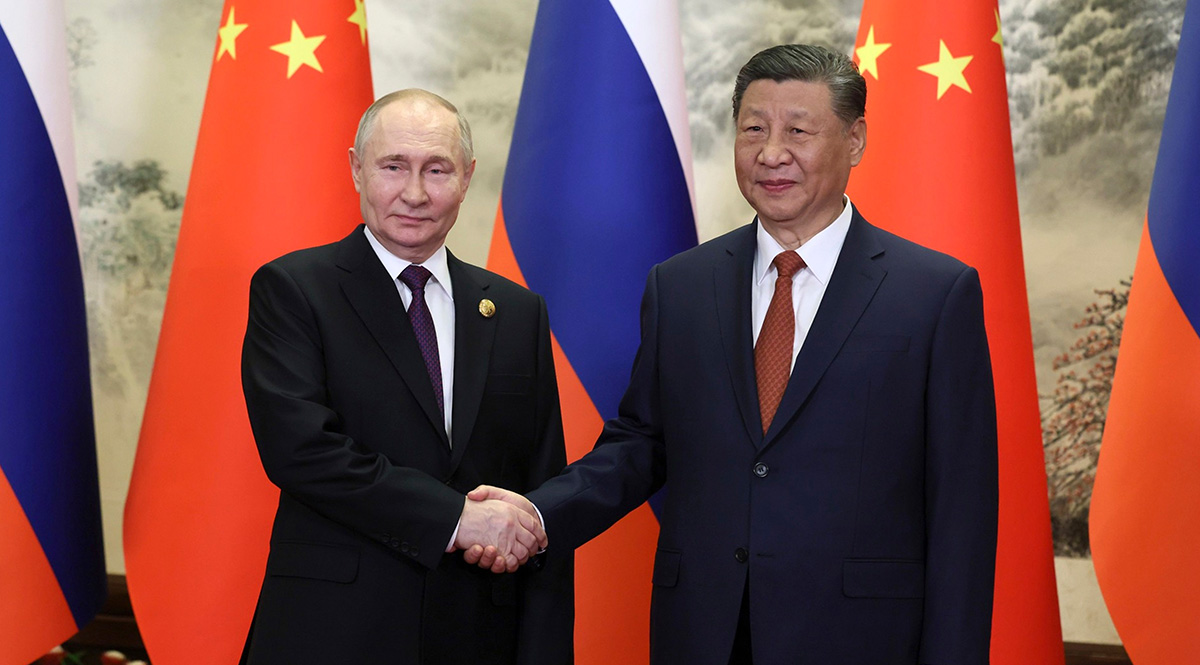Putin's Visits to North Korea and Vietnam
Vladimir Putin visited North Korea and Vietnam on 19-20 June. The result of the Russian leader's first visit to the DPRK in 24 years included the signing of a treaty on comprehensive strategic partnership, including mutual military assistance. The visit to Vietnam focused on economic issues. The strengthening of Russia’s ties with Asian partners indicates that it wants to influence the security environment not only in Europe but also in East Asia, and in the face of sanctions, replace economic relations with the West with contacts with developing countries.
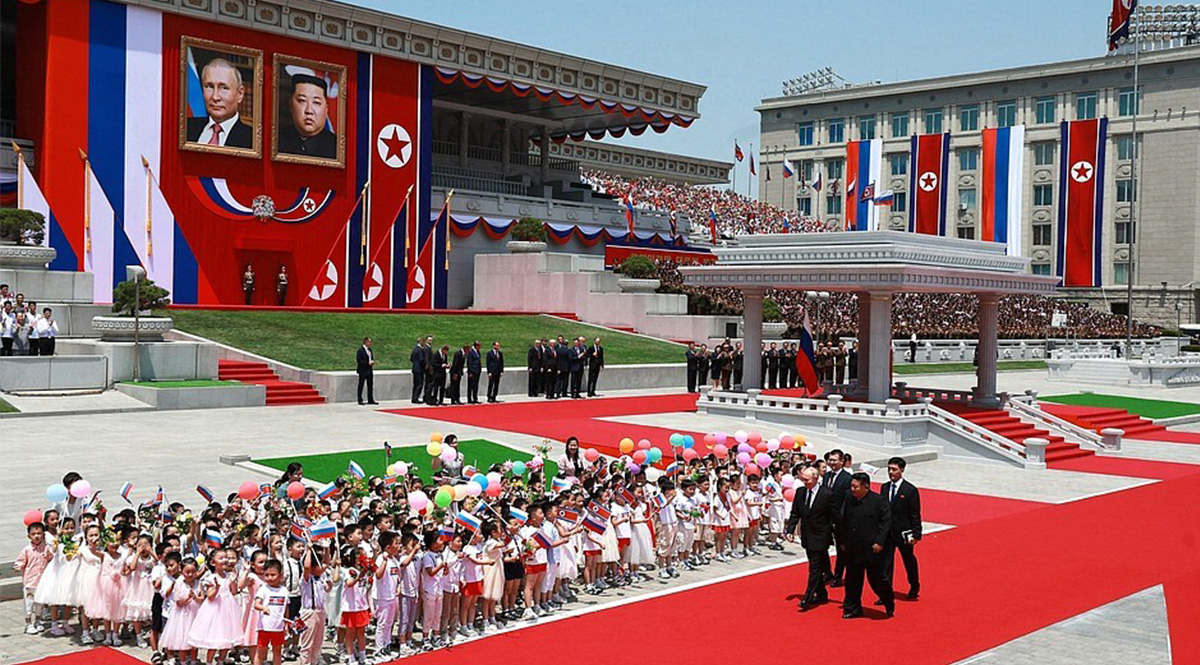 AA/ABACA / Abaca Press / Forum
AA/ABACA / Abaca Press / Forum
Putin’s visit to Pyongyang was another step in the process of rapprochement between the two countries that began with North Korea’s support for Russia in its aggression against Ukraine, including over time the supply of ammunition and armaments. The Russian leader flew to the North at the invitation of its leader Kim Jong Un, extended during their meeting in Russia last September. Regarding Vietnam, it was Putin’s first visit to this country since 2017 and his fifth as president. The visits followed the G7 summit in Italy and the peace conference on Ukraine in Switzerland (15-16 June). Along with Putin’s trip to China in May, they were meant to show that Russia is not isolated internationally because of its aggression against Ukraine.
Findings of the Kim-Putin Summit
The leaders of North Korea and Russia signed a Treaty on the Comprehensive Strategic Partnership, which replaced the Treaty of Friendship, Good Neighbourliness, and Cooperation that had been in effect since 2000. Declared in the preamble, the goal of both countries is to “build a multipolar international order” as a counter to “hegemony” (which means, the U.S.). The parties pledged to develop cooperation in the areas of security and defence, trade and investment, agriculture, tourism, culture and humanitarian issues, among others. The treaty is valid indefinitely with the possibility of unilateral termination (it then expires one year after notification).
Unlike the previous agreement, the new document includes a clause on mutual assistance in case of aggression. This allows North Korea and Russia to be treated as allies. Article 4 states that in response to an armed attack, the parties are obliged to provide each other with immediate military and other assistance by all means, in accordance with Article 51 of the UN Charter, which deals with the right to self-defence. Similar wording was included in the DPRK’s 1961 treaty with the USSR, and is also found in North Korea’s current treaty with China. The wording of Article 4 leaves the parties free to interpret it and does not imply an automatic engagement of armed forces, and it may be limited, for example, to equipment support. In contrast, Article 8, and the part “establishing mechanisms for strengthening defence capabilities”, indicates the readiness of North and Russia to initiate, for example, joint manoeuvres.
Public speeches by both leaders also testify to the growing cooperation. Kim repeated his declaration of “unwavering support” for Russia’s “special operation” in Ukraine, which could signal further deliveries of artillery ammunition and armaments (e.g., Hwasong-11 short-range ballistic missiles). Putin’s suggested military-technical cooperation may in turn include the transfer to the DPRK of Russian technologies needed for the development of military reconnaissance satellites, long-range ballistic missiles (ICBMs) and submarine-launched ballistic missiles (SLBMs), among others. Russia may also support North Korea in modernising its air and naval forces. Putin also said that the UN sanctions regime against the DPRK should be “revised”, in line with Russia’s efforts to weaken the sanctions regime. Acknowledging that North Korea has the right to develop defence capabilities to ensure its security, the Russian president de facto accepted the development of North Korea’s nuclear and missile capacity.
Effects of Visit in Vietnam
In Hanoi, Putin met with, among others, General Secretary of the Communist Party of Vietnam Nguyen Phu Trong, Prime Minister Pham Minh Chih, and President To Lam, who was elected in May.
The sides signed 11 agreements, including in the fields of education, science and technology, health, and energy, including oil and gas production (Russia is Vietnam’s main partner in extraction in the waters of the South China Sea, an area part of a Vietnamese-Chinese territorial dispute). Vietnamese authorities have also licensed Russia’s state-owned Zarubezhneft to exploit deposits on the country’s southeastern coast. Rosatom, in turn, is expected to support the establishment of a nuclear research centre in Vietnam.
The arms trade may also have been a topic of discussion (some of the agreements agreed during the visit were not made public). Although Russian arms deliveries to Vietnam have declined in recent years due to the demand for them for the war in Ukraine, Russia remains a leading supplier of armaments to the Vietnamese army. Indeed, Vietnam is finding it difficult to develop its own manufacturing base and diversify its sources of armaments supplies (according to SIPRI, it did not place any major equipment purchase order in 2023). It is possible that Russia also sought to probe the possibility of importing ammunition and armaments from Vietnam for the Ukrainian front.
Putin stressed that the two countries share a vision of security architecture in the Asia-Pacific region based on the non-use of force and the peaceful resolution of disputes, without the formation of “closed military-political blocs”. The parties also supported the construction of a “fair and sustainable multipolar world order”. In an article published in a Vietnamese newspaper, Putin said the countries have made progress on, among other things, payment settlements, which are being hampered by financial sanctions imposed by the U.S. and EU. However, Vietnam’s trade with Russia is low, at $3.6 billion in 2023 (compare that to China at more than $170 billion; with the U.S. at more than $110 billion; with the EU, at about €60 billion). The Russian president also praised the Vietnamese authorities for their “pragmatic way to solve the crisis” in Ukraine (Vietnam has so far failed to criticise Russian aggression and has often abstained or been against during UN votes condemning the aggressor).
International Implications
The establishment of a Russia-North Korea alliance could affect the security environment in East Asia. By increasing cooperation with the DPRK, Russia wants to force the U.S. to enhance its involvement on the Korean Peninsula at the expense of Central and Eastern Europe. The alliance and the prospect of joint military exercises are also expected to complicate U.S. and its Asian allies’ defence plans, which must now take into account possible Russian military involvement in the event of an escalation on the Korean Peninsula.
The U.S., Japan, and South Korea criticised the actions of North Korea and Russia, stressing that they violate UN Security Council resolutions and destabilise East Asia. South Korea said it would step up defence cooperation with the U.S. and Japan and “seriously consider” supplying armaments to Ukraine. So far, it has publicly confirmed it supplied non-lethal weapons and has denied reports of ammunition deliveries, including through the U.S. Threats to European and Asian security from the North Korea-Russia alliance should prompt NATO to strengthen political and intelligence cooperation with Asian partners. Russian-North Korean cooperation, for example, should be a permanent topic in the political-military dialogue between Poland and South Korea.
The supply of military equipment from the North to Russia perpetuates the hostilities in Ukraine and is also in China’s interest. However, the North’s acquisition of a second treaty ally means a departure from Russia’s previous policy of respecting China’s “sphere of influence”, which was limited to supporting its policy towards the Korean Peninsula. North Korea can use Russian support to strengthen its position in relations with China. The prospect of the DPRK rearming and being encouraged by Russia to escalate tensions on the Korean Peninsula would increase the risk of conflict, which would not be in China’s interest.
Putin’s visit to Hanoi was heavily criticised by the U.S. and the EU, among others. It served to build Vietnam’s image as a country that is neutral towards conflicts in the world and chooses to maintain good relations with all countries recognised as superpowers. The strengthening of relations with Russia complements the upgrading of relations with the U.S. to a comprehensive strategic partnership (concluded last September during President Joe Biden’s visit), as well as the rapprochement with China, which was visible in leader Xi Jinping’s visit in December 2023. Putin’s arrival in Hanoi will temporarily worsen Vietnam’s relations with the U.S. and the EU, but in the long run, cooperation will continue. This is due to the country’s importance as a vital manufacturing centre and a place to relocate investment from China under the derisking policy, as well as an opponent of China in disputes in the South China Sea. If Russia-Vietnam relations tighten, for example, in the sphere of supplying dual-use technology, it is possible that arms supplies from the EU to Vietnam will be restricted in the future, and the suspension of the application of the bilateral free trade agreement may be considered (the EU may so decide, citing human rights violations).
However, given the reluctance to antagonise the U.S. and the fear of sanctions, it is unlikely that Vietnam will supply Russia with weapons or military technology. Meanwhile, it is possible that Russia and Vietnam will develop payment systems bypassing Western institutions. The operation of such systems will be limited and costly, however, and surpassing the dollar is probably not feasible, not least because of the high liquidity of the U.S. currency.


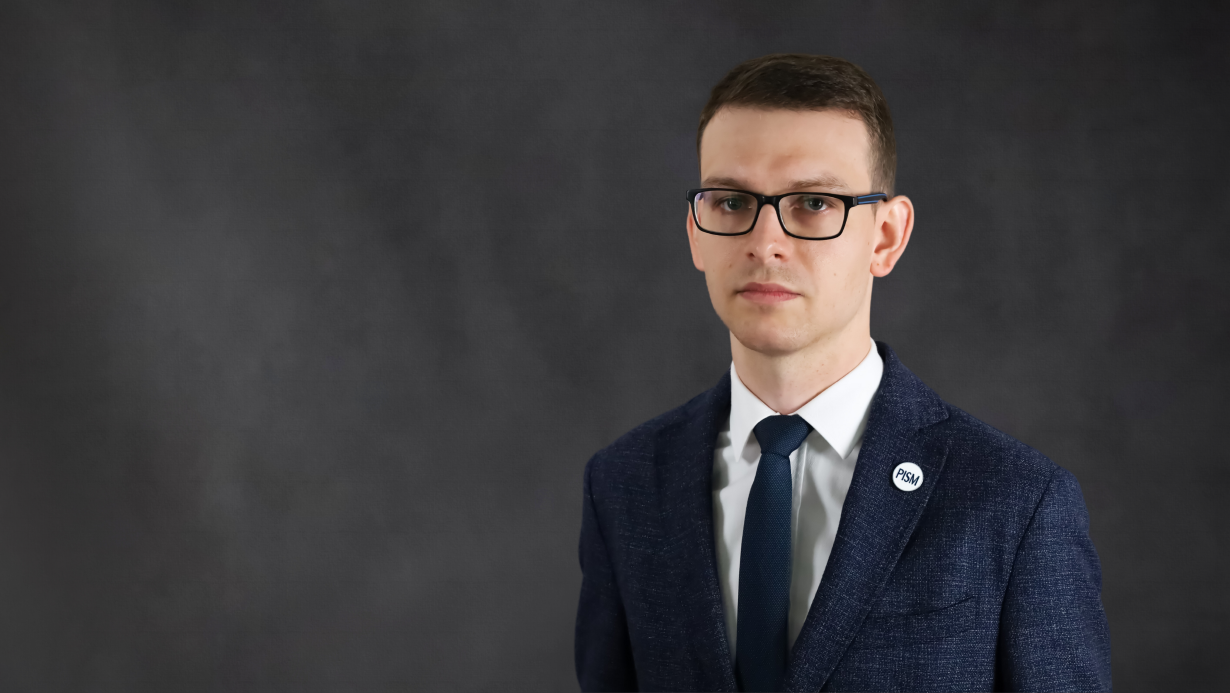
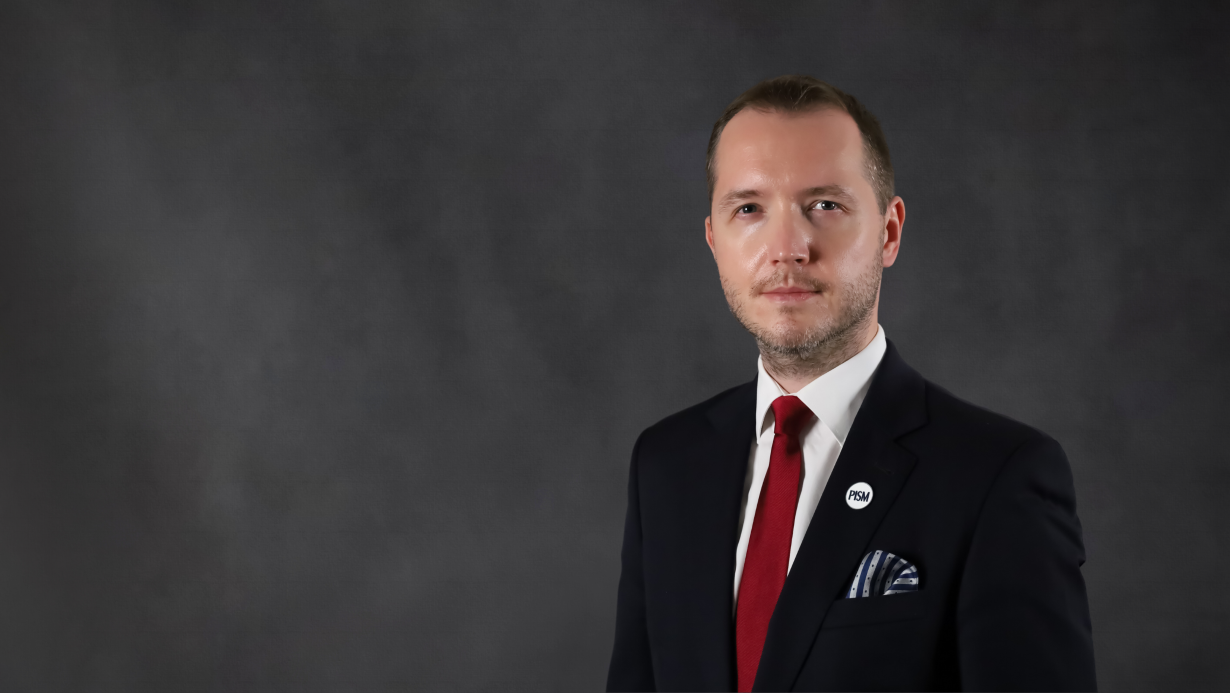
.jpg)
